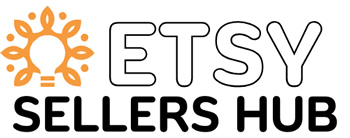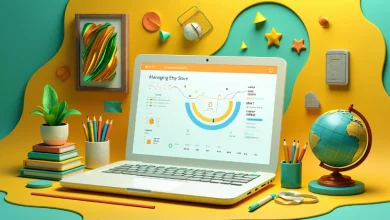How to Take Professional Product Photos for Etsy Products
Capture Stunning Shots: The Ultimate Guide to Taking Professional Product Photos for Your Etsy Shop

High-quality product photos are the backbone of a successful Etsy shop. They not only showcase your items but also build trust with buyers and drive sales. In this article, we’ll show you how to take professional product photos for your Etsy listings—even if you’re working with limited resources. We’ll cover everything from lighting and composition to editing and mockups—all while incorporating long-tail keywords like “how to take professional product photos for Etsy” to improve your search rankings. For more tips on improving your Etsy SEO, check out our Organic Promotion on Etsy category.
Why Professional Photos Matter for Etsy Success
Buyers rely heavily on visuals when shopping online, especially on platforms like Etsy where unique, handmade, and personalized products dominate. High-quality photos help your products stand out, increase click-through rates, and boost conversions. To learn more about managing your shop efficiently, visit our Etsy Shop Management category.
Key Benefits of Professional Photos
- Increased Visibility: High-quality images rank better in Etsy searches.
- Higher Conversions: Buyers are more likely to purchase from visually appealing listings.
- Brand Consistency: Professional photos help establish a cohesive brand identity.
Step-by-Step Guide to Taking Professional Product Photos
1. Choose the Right Background
The background sets the tone for your product photos. For example:
- Use neutral colors like white, gray, or beige to keep the focus on your product.
- Avoid cluttered or distracting backgrounds that detract from your item.
- For seasonal products, consider adding subtle props like leaves for fall or snowflakes for winter.
Real-Life Example: One of our early Premium VIP Members replaced her busy-patterned backgrounds with simple white backdrops. Her shop’s conversion rate increased by 25% within two weeks. Want to replicate her success? Join our Premium VIP Membership to access exclusive photography tips and strategies.
Pro Tip: For unlimited access to high-quality mockups and templates, consider signing up for Envato Elements. Their library includes thousands of design assets to elevate your product photos.
2. Use Natural Light
Natural light is your best friend when it comes to product photography. For example:
- Shoot near a window or outdoors during daylight hours.
- Avoid direct sunlight, which can create harsh shadows—opt for soft, diffused light instead.
- Use a white sheet or reflector to bounce light onto your product for even illumination.
Pro Tip: For advanced lighting setups, explore our Photography – Video and Images category. We share step-by-step tutorials to elevate your skills.
3. Experiment with Angles
Try shooting from different angles to find what works best for your product. For example:
- Overhead shots work well for flat lays (e.g., prints, cards).
- Eye-level shots highlight details (e.g., jewelry, ceramics).
- Close-ups showcase textures and craftsmanship.
Real-Life Example: A seller in our Premium VIP Membership started using close-up shots to highlight the intricate details of her handmade pottery. Her sales increased by 40% within a month. Ready to unlock these strategies? Join today!
4. Add Props for Context
Props can add context and style to your photos without overwhelming the product. For example:
- Use neutral-colored fabrics, wooden surfaces, or seasonal decor as backdrops.
- Add small items like flowers, ribbons, or books to complement your product.
Pro Tip: For unlimited access to high-quality mockups and props, consider signing up for Placeit. Their library includes thousands of lifestyle mockups to enhance your listings.
5. Edit Your Photos
Editing can transform a good photo into a great one. For example:
- Adjust brightness, contrast, and saturation to enhance colors.
- Crop the image to focus on your product and remove distractions.
- Use free tools like Snapseed or VSCO for mobile editing.
Real-Life Example: A member of our Premium VIP Membership used Snapseed to edit her product photos, resulting in a 30% increase in clicks and a 20% boost in sales. Want to achieve similar results? Join now and gain access to our editing resources.
Pro Tip: For beginners, check out our Canva Flash Course for Etsy Sellers. Learn how to edit photos like a pro using Canva’s intuitive interface.
6. Use Mockups for Context
Mockups allow you to showcase your products in real-life scenarios, making them more relatable to buyers. For example:
- Create lifestyle mockups of your mugs, tote bags, or apparel.
- Use tools like Placeit to generate professional mockups in minutes.
Real-Life Example: A member of our Premium VIP Membership used Placeit to create mockups of her custom t-shirts. Her shop saw a 50% increase in views and a 25% rise in orders. Want to achieve similar results? Join now and gain access to our mockup creation resources.
Pro Tip: For more ideas on using mockups effectively, visit our Marketing Outside Etsy category. We share strategies for driving traffic with compelling visuals.
Advanced Tips for Professional Photos
1. Maintain Consistency
Use consistent backgrounds, lighting, and styles across all your listings to create a cohesive brand aesthetic.
2. Use Apps for Advanced Editing
For more control over your edits, explore apps like Adobe Lightroom or Darkroom. These tools offer advanced features like selective adjustments and filters.
3. Test Different Crops
Experiment with square, vertical, and horizontal crops to see which format works best for your product.
Common Mistakes to Avoid
- Poor Lighting: Dark or uneven lighting makes your products look unappealing.
- Cluttered Backgrounds: Busy backgrounds distract from your product.
- Skipping Editing: Unedited photos often lack polish and professionalism.
FAQs About Professional Product Photos
Q: What if I don’t have a DSLR camera?
A: You can take stunning photos with just your smartphone. For detailed instructions, visit our Photography – Video and Images category.
Q: Do I need expensive props?
A: No—simple, affordable props like fabric swatches or household items work perfectly. For troubleshooting tips, explore our Promoting an Existing Shop category.
Q: How do I track the success of my new photos?
A: Use Etsy’s built-in analytics to monitor views, favorites, and conversion rates. For a deeper dive into analytics, check out our Must Have Tools for Etsy Sellers category.
Ready to take your Etsy listings to the next level with professional-quality photos?
Download our exclusive ETSY Shop Builder Guide to learn advanced strategies for success. Plus, join our Premium VIP Membership to access exclusive tools, templates, and personalized support that helped our members achieve incredible results. Don’t wait—start capturing stunning photos today!
In this article, we explored how to take professional product photos for Etsy, from choosing the right background and lighting to editing and mockups. With the right strategies, you can turn your smartphone into a powerful tool for growing your Etsy business. For more resources, explore our Building a New Shop on Etsy category or our Must Have Tools for Etsy Sellers category.






